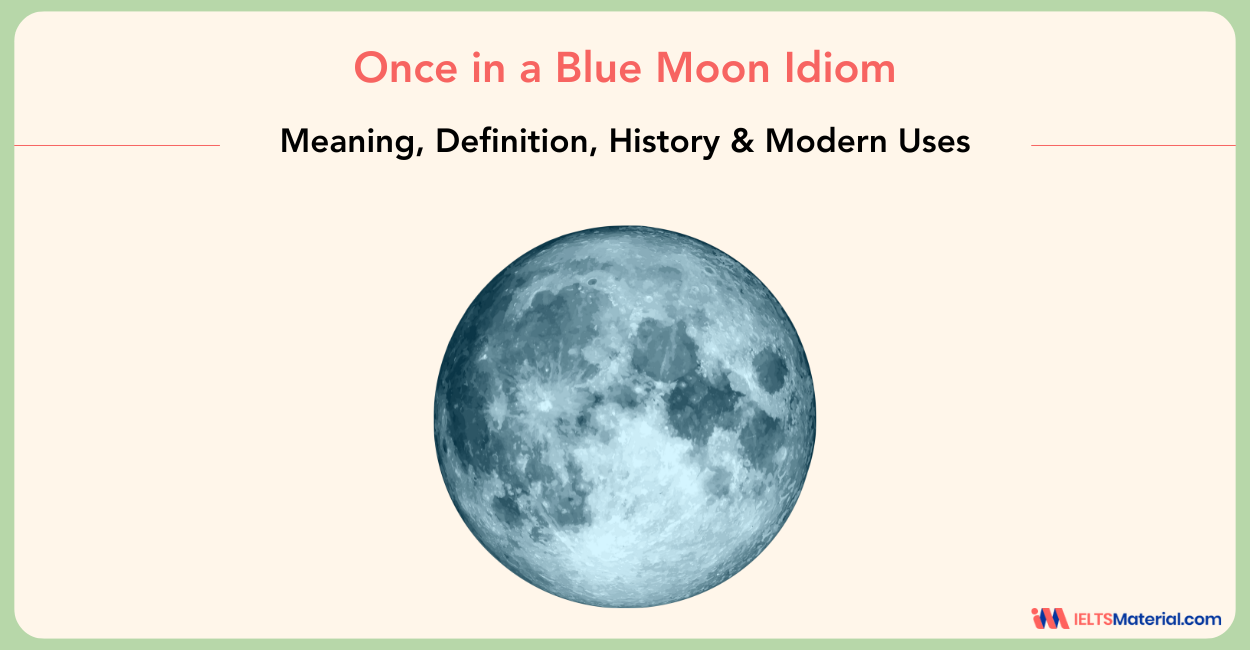Let Yourself Go - Idiom of the Day for IELTS
3 min read
Updated On
-
Copy link
The idiom 'let yourself go' means either take less care of your appearance or relax completely and enjoy yourself. This blog gives the idiom's history, examples, and practice exercises to help you master it for an IELTS band 8+.
Table of Contents

Limited-Time Offer : Access a FREE 10-Day IELTS Study Plan!
English idioms often capture deep emotions, behaviors, and cultural ideas in just a few words. One such versatile expression is ‘let yourself go’. Depending on the context, this idiom can describe both physical and emotional states, making it a valuable phrase to understand for learners and to achieve a high IELTS band score.
This blog post will explore the idiom's meaning, origin, usage, and provide examples for IELTS Speaking and Writing.
Let Yourself Go: Meaning with Examples
The idiom ‘let yourself go’ has multiple meanings, depending on the context. Here are the most common interpretations:
1 To stop taking care of your appearance or health
This is often used in a negative sense, referring to someone who has gained weight, become less active, or started looking unkempt.
Examples:
- Ever since he lost his job, he’s really let himself go — he doesn’t even shave anymore.
- He used to be really fit, but after the breakup, he totally let himself go.
2 To relax and enjoy yourself without worrying
This usage is more positive. It encourages someone to forget their stress, let loose, and have fun.
Examples:
- Come on! You’re on vacation — just let yourself go and have a good time.
- The music was amazing, and everyone just let themselves go on the dance floor.
3 To express emotions freely
It can also refer to someone emotionally opening up or breaking down.
Examples:
- At the funeral, she finally let herself go and cried uncontrollably.
- She had been holding it in for days, but when she saw the photo, she let herself go.
Are you having difficulty improving your word power for IELTS?
Let Yourself Go: Origin
The exact origin of ‘let yourself go’ is unclear, but its roots likely come from early 20th-century English. The phrase is formed by combining the verb ‘let’ (meaning allow or permit) with the reflexive phrase ‘yourself go’, meaning to release control.
Over time, this evolved to reflect various situations where a person either relinquishes emotional control, self-restraint, or physical upkeep.
The idiom has become increasingly common in media, music, and everyday speech, especially in self-help, fitness, and wellness contexts.
Let Yourself Go: Variations
While ‘let yourself go’ is the standard form, there are a few variations. They are:
- Let loose – Focuses more on enjoying yourself: ‘They really let loose at the party.’
- Lose control – Has a more negative or emotional tone: ‘He lost control and started yelling.’
Aiming to wow your IELTS examiner with your vocabulary?
Begin with our Vocabulary for IELTS!
Let Yourself Go: Exercises
Practice the exercises below to learn how to use the idiom ‘let yourself go’ correctly.
1 What does it usually mean when someone says, “He has let himself go”?
A) He changed his job
B) He improved his fitness
C) He stopped caring about his health or appearance
D) He moved to a new city
2 Choose the sentence that uses “let yourself go” in a positive way.
A) Since the divorce, he’s let himself go.
B) She let herself go and had a great time at the party.
C) He let himself go and now rarely showers.
D) It’s sad how she let herself go after losing her job.
3 Which of the following best matches the meaning: “She let herself go and cried freely”?
A) She became lazy
B) She lost weight
C) She released her emotions
D) She ran away from home
Answers
1 C
2 B
3 C
The idiom ‘let yourself go’ is a versatile and expressive phrase that can describe a decline in self-care, an invitation to enjoy oneself, or a release of emotion. Its meaning depends heavily on tone and context. Mastering idioms like this helps learners sound more natural and understand the emotional depth of English conversations.
Useful Links:
Explore IELTS Resources

Start Preparing for IELTS: Get Your 10-Day Study Plan Today!
Check out other Idioms

Haniya Yashfeen

Haniya Yashfeen
Recent Articles

Kasturika Samanta

Prity Mallick

Nehasri Ravishenbagam







Post your Comments